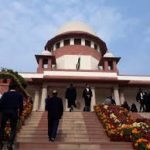The judgment concerns an appeal by Virender Pal @ Vipin (the accused-appellant) against his conviction for dowry death.
- The deceased, Punita alias Gayatri, was married to the appellant on 28th February 2008.
- A complaint was filed on 1st June 2009 by Punita’s father, Shri Balraj Singh (PW-1).
- The allegations were that the appellant and his family (mother, father, brother, uncle) were dissatisfied with the dowry and subjected Punita to harassment, taunts, and physical abuse soon after the marriage.
- Specific demands included Rs. 5 lakhs from Punita’s father and uncle to secure a job for the appellant, despite Punita’s father already giving Rs. 50,000/-.
- On the morning of 1st June 2009, Punita telephonically informed her brother (PW-3) about prior night’s harassment and impending danger, and shortly after, the complainant received a call that his daughter had died, reportedly having jumped from the roof due to persistent harassment and dowry demands.
- The appellant was convicted by the Sessions Judge, Panipat, under Section 304-B of the Indian Penal Code and sentenced to rigorous imprisonment for 10 years. This conviction and sentence were upheld by the High Court of Punjab and Haryana.
Law Involved
- Section 304-B of the Indian Penal Code (IPC): This section deals with ‘dowry death’ and was the basis for the conviction.
- Section 34 of the IPC: Applied alongside Section 304-B in the FIR and chargesheet.
- Section 113-B of the Indian Evidence Act, 1872: This section raises a presumption of dowry death when certain conditions are met, shifting the burden of proof to the accused to explain the unnatural death of a woman within seven years of marriage, preceded by cruelty or harassment for dowry soon before her death.
Reasoning The Supreme Court’s reasoning for upholding the conviction focused on:
- Unnatural Death within Seven Years of Marriage: The deceased died on 1st June 2009, having been married on 28th February 2008, which is within 1 year and 3 months of marriage, clearly satisfying this condition for Section 113-B of the Evidence Act and Section 304-B IPC.
- Consistent Evidence of Dowry Demands and Cruelty: The Court found consistent and reliable evidence from the prosecution witnesses (PW-1, PW-2, PW-3, PW-10) regarding continuous demands for dowry and harassment meted out to Punita.
- Cruelty “Soon Before Death”: The deceased had informed her brother (PW-3) about the previous night’s harassment and impending danger just hours before her death, further stating the appellant had beaten her and she feared for her life. This established the nexus between the harassment and her death.
- Rejection of Defence Theory: The appellant’s defence that Punita suffered from a knee problem leading to depression and suicide, or an accidental fall, was rejected.
◦Medical evidence from Dr. Rahul Diwan (PW-9), the Medical Officer who conducted the post-mortem, clearly indicated that the cause of death was shock and haemorrhage due to ante-mortem injuries to the brain, resulting from mechanical violence, ruling out natural causes.
◦The Court found the defence witnesses’ testimony regarding knee issues to be “flimsy and unbelievable” and termed the narrative of knee pain leading to jumping from the terrace as a “fictional story created by the accused-appellant as an afterthought to escape conviction“.
◦The defence theory that the deceased committed suicide by jumping from the terrace or fell accidentally was not supported by the medical report or other evidence.
- Presumption of Dowry Death: Given the fulfillment of all conditions, the presumption under Section 113-B of the Evidence Act was rightly raised by the trial court. The appellant failed to discharge this burden by providing a satisfactory explanation for the unnatural death.
Holding The Supreme Court dismissed the appeal, thereby upholding the judgment of conviction and sentence passed by the Sessions Judge and affirmed by the High Court . The accused-appellant, who was on bail, was directed to surrender within a period of four weeks to serve the remaining sentence .
Virender Pal @ Vipin V. State Of Haryana
Supreme Court: 2025 INSC 710: (DoJ 15-05-2025)






